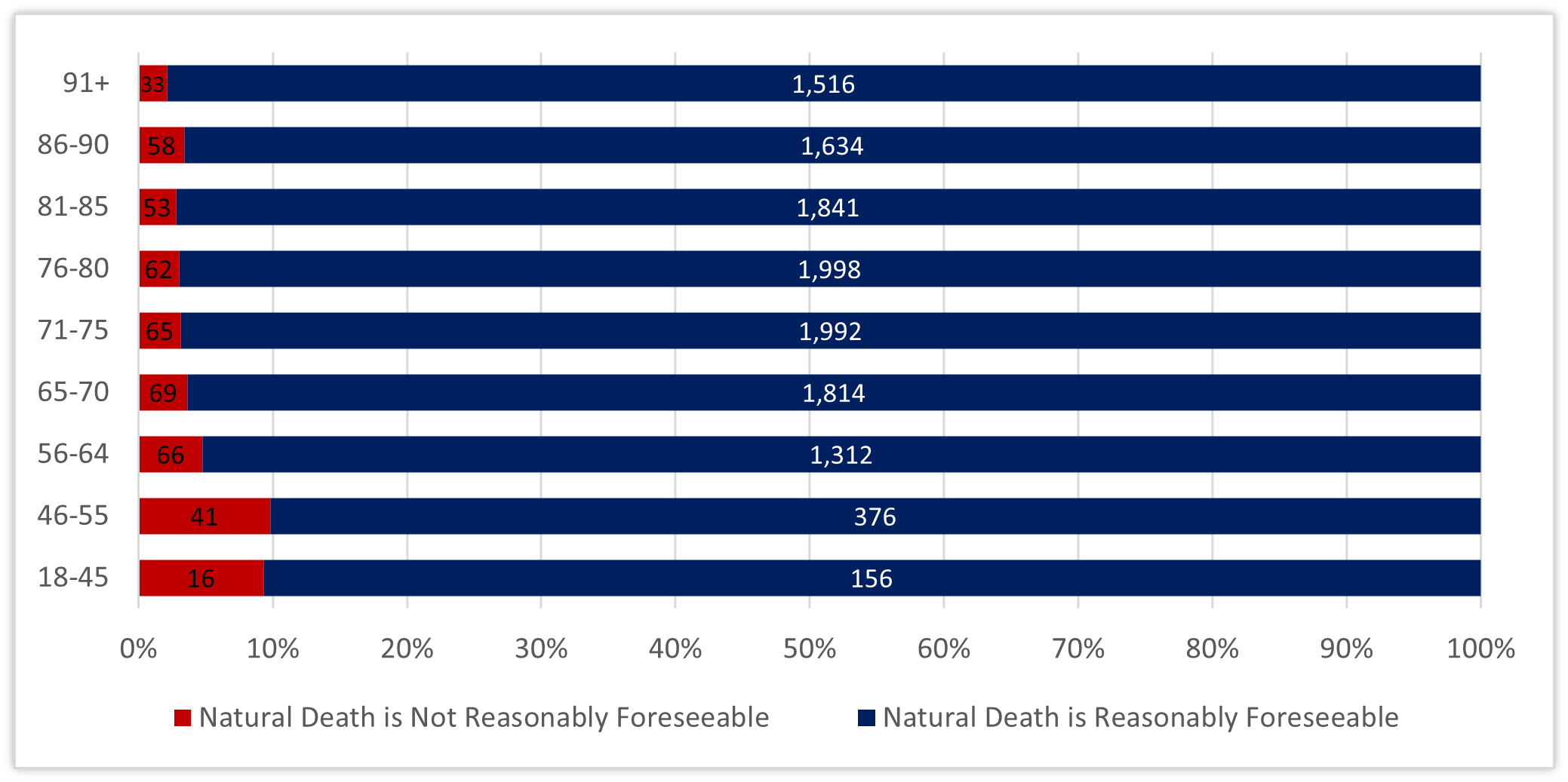The sky hasn’t fallen. MAID has been an overwhelming success, respecting freedom, reducing suffering, and providing a dignified death to tens of thousands of Canadians in need.
We legalized medical assistance in dying in 2016.
Opponents claimed the sky would fall.
In 2021, we extended access to MAID beyond situations where one’s natural death was reasonably foreseeable.
Opponents claimed the sky would fall.
Has the sky fallen? The answer is no.
Despite regular fearmongering, the numbers paint a clear picture: MAID in Canada has been an overwhelming success. It has afforded dignity to thousands of Canadians who made their own fundamental life choice to end unbearable suffering.
Before we get to the numbers, here’s a quick summary of the rules:
MAID is available to anyone in Canada who is suffering grievously from an irremediable illness, provided the individual is of a sound mind.
Access to MAID requires an independent assessment by a clinician.
In the case of an individual whose death is not reasonably foreseeable, there are additional safeguards, including a 90 day waiting period.
MAID is not yet available to individuals where mental illness is the sole underlying condition (and the government has wrongly delayed extending it, yet again). Of course, it should be available, provided the mental illness in question doesn’t impact the individual’s capacity to consent. It’s worth noting that MAID is already available to individuals who suffer both from physical and mental illness at the same time, so these capacity issues are already being managed.
Now, to the numbers.
Here are ways you might see the issue framed to suggest that the numbers are cause for concern:
The Star’s headline blares that a “Surge in medically assisted deaths under Canada’s MAID program outpaces every other country.” The article is based on a Health Canada report that breaks down the 2022 numbers, finding a 30% increase in MAID access vs 2021.
A subsequent Star op-ed argues that Canada has moved too quickly to embrace MAID, and needs to put the brakes on.
Scary stuff, potentially.
So, let’s look under the hood at that Health Canada report.
In 2022, there were 13,241 MAID provisions in Canada.
96.5% of those cases took place where the person’s natural death was reasonably foreseeable.
The majority of people had cancer (63%), cardiovascular conditions (18.8%), or neurological conditions (12.6%) like Parkinson’s, ALS, MS, etc. We already know that cancer and heart diseases are the top two leading causes of death in Canada, so these figures aren’t surprising.
The average age of MAID recipients in 2022 was 77 years. Not a very slippery slope so far.
Health Canada reports that “Only a small percentage of individuals receiving MAID were between 18-45 (1.3%) and 45-55 (3.2%).”
But even this frame of reference overstates any potential concern. After all, those figures include situations where the person’s natural death was reasonably foreseeable, regardless of age.
If there’s a slippery slope concern here, it should be focused on people receiving MAID whose natural death is not reasonably foreseeable. These are, ostensibly, people who could have led long lives, cut short by the tragedy of state-sponsored assisted suicide.
In Parliament and in the media, we’ve regularly heard concerns that people will seek to end their lives via MAID too early as a consequence of poverty or a lack of social or mental health supports, and that the law has expanded too quickly.
What do the numbers tell us about these concerns?
Well, in 2022, 463 people took advantage of MAID when their natural death was not reasonably foreseeable, 3.5% of total MAID recipients.
In other words, while MAID accounted for 4.1% of all deaths overall, “MAID for individuals whose natural death is not reasonably foreseeably represents just 0.14% of all deaths in Canada in 2022.”
Half of these 463 people suffered from neurological conditions.
Over 70% of these 463 people were at least 71 years old.
Here’s a helpful chart that breaks down MAID by age:

Only 16 people younger than 45 accessed MAID where their natural death was not reasonably foreseeable. This represents 0.0012% of all MAID deaths in 2022, and 0.000048% of all deaths in Canada.
A total of 123 people under the age of 65 accessed MAID where their death was not reasonably foreseeable. This represents 0.0093% of all MAID deaths in 2022, and 0.00037% of all deaths in Canada.
And, again, every single one of these people received an independent assessment from a clinician to determine capacity, they were of a sound mind to make their own fundamental life decisions, and they were suffering unbearably.
To put this in even greater perspective, consider that 3,593 people committed actual suicide in 2022, including 26 people under the age of 15, and 2,917 under the age of 65. Or consider that 7,328 people died from opioid overdose that same year.
Are we showing any comparable level of attention and concern?
MAID, in contrast, has offered a dignified death to tens of thousands of Canadians since we regulated it. It has decreased immense suffering and it has increased respect for individual autonomy and freedom (and here I thought Canada should be the freest country in the world!).
The sky hasn’t fallen. The slope isn’t slippery.
Yes, of course we can and should continue to improve social and mental health supports. We would likely prevent more actual suicide deaths that way.
But let’s not impugn a successful health system that respects individual freedom and autonomy and offers dignity in the face of incredible suffering.
MAID was set to be extended this March to situations where mental illness is the sole underlying condition. It would have applied to very few Canadians, and we could have further strengthened safeguards if needed.
Instead, under pressure, the government caved and will likely kick the can beyond the next election.
Unfailingly, many of the same opponents again claimed the sky will fall.
With the right safeguards, the numbers tell us that it won’t.



